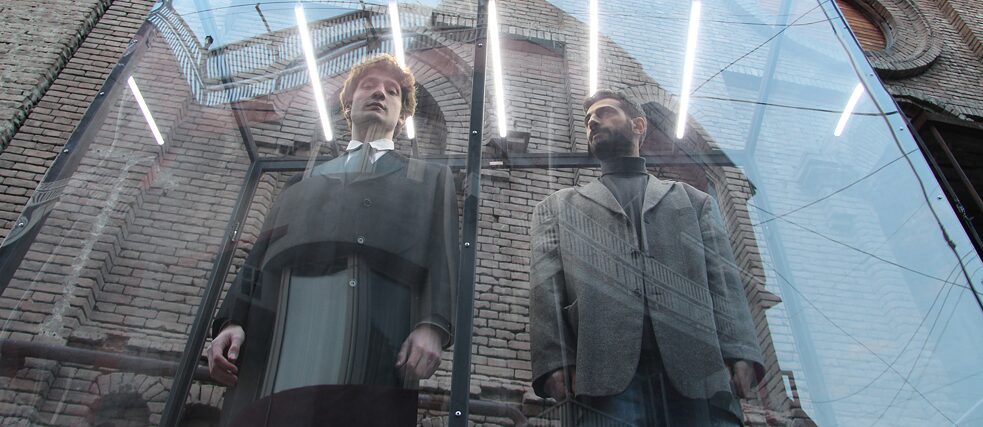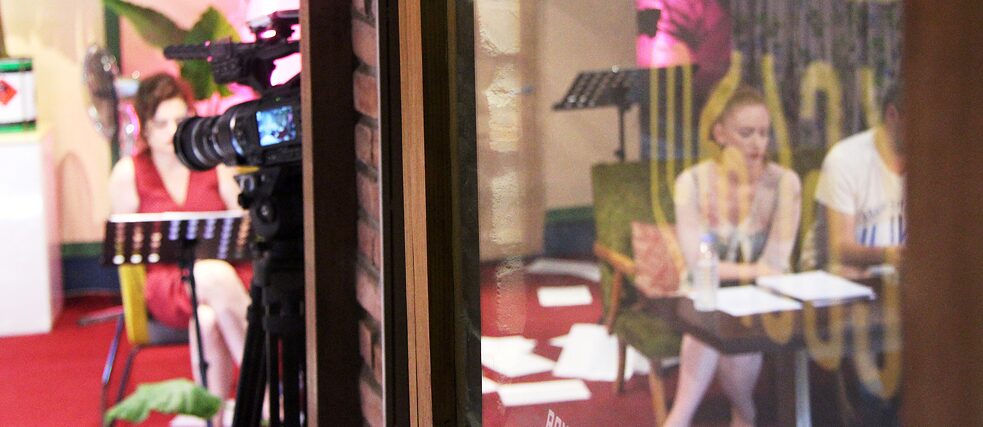International Relief Fund 2020
Theatre without Theatre

The anti-Corona measures hit the Georgian cultural sector unprepared – including the Royal District Theatre in Tbilisi. Dramaturge Davit Gabunia reports on how the theater was able to continue thanks to funding from the International Relief Fund 2020 of the Goethe-Institut, the German Foreign Office and other foundations and cultural intermediary organizations.
By Davit Gabunia
The Royal District Theatre, an old 19th century-building and a landmark place for younger theatre-makers, has been closed in March 2020. Georgia has adopted strict measures in order to fight the COVID-19 pandemic, and has never reopened cultural institutions since the outbreak. This is a new harsh reality the local cultural sector has to face and it turned out to be completely unprepared, as Data Tavadze, director of the Royal District Theatre, admits.
The group of young theatre-makers working and studying at the studio of the Royal District Theatre responded to the spring lockdown with a 9-hours long live performance. Three actors were “captivated” in the theatre foyer and shared with the audiences (in the street and online) stories of isolation, despair, hope, joy, anger and sadness written by six young authors. This was in July, right after the softening of the lockdown. The theatres were still closed then, so the artists decided to perform in the foyer. Everyone had strange feelings – you are at the theatre but you cannot enter. This works as a perfect metaphor for the cultural life in Georgia right now.
 “There’s Drama” – 9 hours performance in July | Photo (detail): © Gika Mikabadze
“There’s Drama” – 9 hours performance in July | Photo (detail): © Gika Mikabadze
After Standstill
Now the theatre is preparing a full digital program. Actors are eager to work, after a long time of stagnancy. A lot of of adjustments have to be done. “It’s not the same whether you act in front of a theatre hall full of people or in front of a camera. We are used to interact with living people,” says Soso Khvedelidze, ensemble-actor. They are rehearsing a devised play, a collaboration of playwrights, director and actors – a thought-provoking and self-critical political piece about the importance of art in social life. The director, Data Tavadze, adds, that they do not have a title for the performance yet, but this is the least they are worried about. “Titles can wait, the work cannot. With this piece we are trying to explore how valid our existence is: do we really need art, is it crucially important, can it somehow contribute to the life of the country in general? This is a painful but much needed exploration,” he concludes.German subtitles can be displayed.
Apart from technical issues, Georgian theatre-makers have to deal with even more complications due to restrictions. One of the major plans was to perform outside, have a series of simultaneous outdoor performances in the streets. This needs to be yet authorized by the municipality. But looking at the work-in-progress of the group gives an answer to the question they are exploring: the role of culture cannot be underestimated. And the current pandemic crisis is the crucial moment for theatre-makers to prove their relevance, culture cannot be canceled.
Autor
Davit Gabunia is Dramaturgue at the Royal District Theatre Tbilisi.